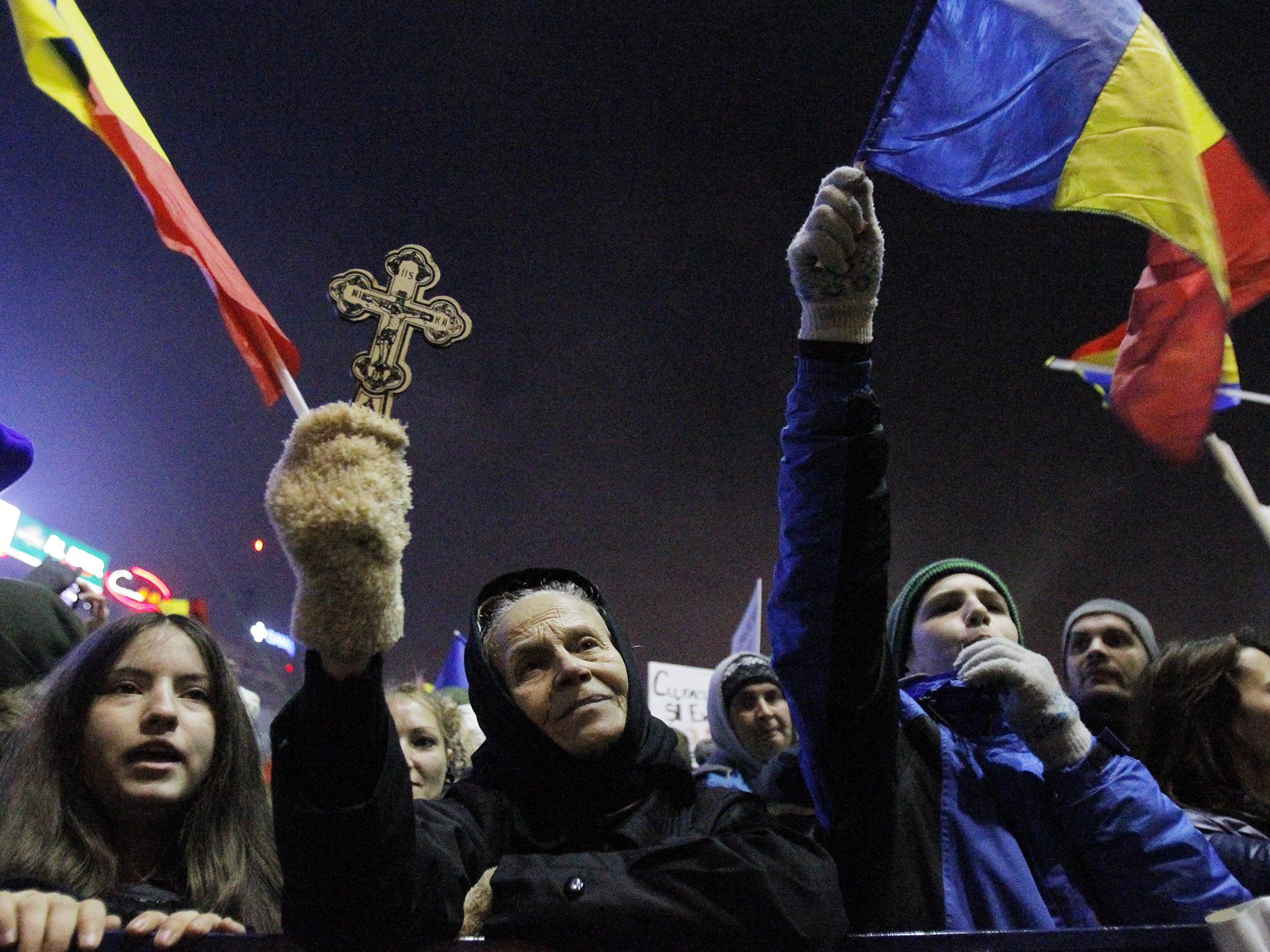'We are in a crisis,' says Romania's President Klaus Iohannis amid mass protests
'Romania needs a government that is transparent, which governs predictably by the light of day, not sneakily at night'

Romania's president has said the country is in a “fully-fledged” political crisis, after hundreds of thousands demonstrated against a government measure that would weaken the country's anti-corruption drive.
In an address to Parliament, President Klaus Iohannis, a critic of the two-month-old government, said the majority of Romanians now believed the country was going in the wrong direction.
“Romania needs a government that is transparent, which governs predictably by the light of day, not sneakily at night,” the president said, referring to the late hour the government passed an emergency ordinance last week aimed at decriminalising some forms of official corruption.
The move – which bypassed Parliament and was not signed off by Iohannis, who has limited powers – ignited the biggest protests seen since communism ended in the country in 1989. As a result, the government will now seek to introduce the plan in Parliament.
The Government rescinded the decree on Sunday, which critics said would have turned back the clock on the fight against corruption in the European Union member state, but some protesters have pledged to keep up the pressure until Prime Minister Sorin Grindeanu resigns.
However, while President Iohannis admonished the government he also said the ruling Social Democrat Party (PSD) had won the right to govern in a December election and should continue to do so – a message that may take the sting out of the protests.
Hundreds of thousands of Romanians have taken to the streets for the past week in cities across the country, thronging Bucharest's broad boulevards in scenes that will not have gone unnoticed elsewhere across Eastern Europe, blighted by corruption and cosy ties between business and politics since the end of communism.
“The prosperity of the Romanian people was not your first priority. Your first concern was to look after the penal files, and that's why Romanians are indignant and revolted,” Mr Iohannis told legislators.
Despite the crisis, he said new elections were not the answer.
“You have been saying in public that I would like to overthrow the legitimate government. That's false. You won, now you govern and legislate, but not at any price,” Mr Iohannis said.
“The resignation of a single minister is too little and early elections would at this stage be too much. This is the available room for manoeuvre.”
Though his role is largely ceremonial, the president's powers include nominating the prime minister after elections and returning legislation to parliament for reconsideration.
PSD MPs walked out of the assembly around half-way through the president's speech. They later returned to approve the government's 2017 spending plan
Romania, a country of 20 million people and host to a US ballistic missile defence station, remains one of the poorest and most corruption-ridden members of the EU.
The decree would have decriminalised a number of graft offences and shielded many public officials from corruption allegations.
Even after the U-turn, 250,000 protesters turned out in Bucharest on Sunday evening, with some saying they would not be satisfied until the government resigned.
Around 25,000 rallied again in the capital on Monday evening. It was unclear how many might turn out on Tuesday night, but some protesters have said they will continue until parliament votes on whether to endorse the government's repeal of the decree, likely by the end of the week.
One minister has already quit over the decree, saying he could not support it, and the Social Democrats have said they expect Mr Grindeanu to decide whether or not to keep Justice Minister Florin Iordache, the architect of the measure.
The government, which holds a big majority, faces a no-confidence motion in parliament on Wednesday, when several PSD sources, speaking on condition of anonymity, have told Reuters they also expect Mr Iordache to submit his resignation.
“For sure, some resignations would be needed and probably inevitable from the government,” said political commentator Cristian Patrasconiu. “This is what the street would like to see.”
PSD leader Liviu Dragnea said he agreed with the president that an early election would solve nothing.
“The governing programme is good,” said Mr Dragnea, whose current trial on abuse-of-office charges would have been halted by the decree. “If we let the government govern then the entire country stands to gain.”
Reuters
Join our commenting forum
Join thought-provoking conversations, follow other Independent readers and see their replies
Comments
Bookmark popover
Removed from bookmarks